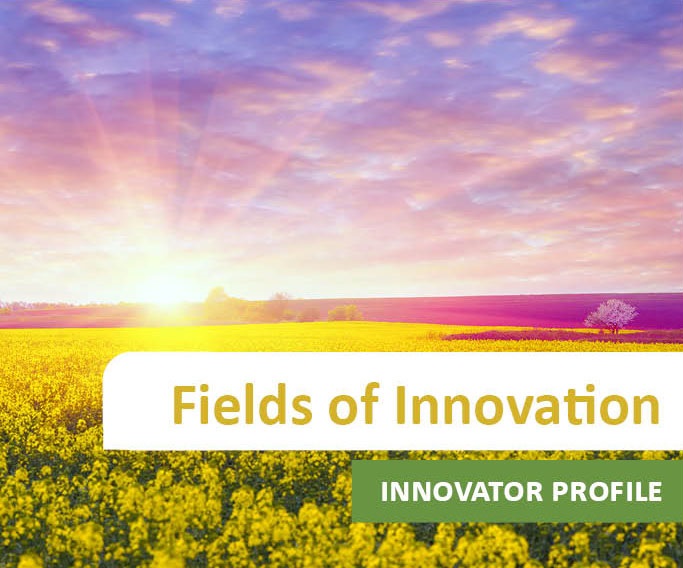AURI Connects: Fields of Innovation Innovator Profiles is a Q&A series with Minnesota entrepreneurs who have partnered with AURI to build capacity and successfully commercialize new crop and livestock opportunities, including new traits for existing crops.
Q&A with Sue Marshall, Founder/CEO of NETZRO
AURI: What is your involvement with the Agricultural Utilization Research Institute (AURI)?
SM: NETZRO contracted with AURI on several projects in the area of byproduct utilization, optimization and commercialization. AURI has been instrumental in the success of NETZRO’s technology and approach to the market with upcycled ingredients.
AURI: What innovative ag path are you blazing?
SM: NETZRO is a food upcycling technology company. Its technology platform powers the safe conversion of industrial food and beverage waste into new sustainable upcycled food ingredients at scale. We work with large and small-scale businesses across the country to divert tons of food byproducts from landfills to upcycle these still nutritious food byproducts using our patented tech, and then sell the new, upcycled ingredients to food producers like bakeries, restaurants and more. This process transforms food byproducts (e.g.: eggshells, spent grain) into safe, nutritious and versatile upcycled ingredients that are good for the planet and consumers. The vision of NETZRO is to eliminate food waste and expand the food economy without growing more food. We are committed to bringing all food to its highest value while bridging multiple stakeholders to create a circular upcycled food economy. We take food that would otherwise be wasted and powers it forward to feed more people.
AURI: How do you see your business growing and what are your next steps?
SM: NETZRO is currently preparing for a transformative stage of business growth. We are expanding and our proprietary technology platform is available for procurement. We customize solutions for upcycling needs so more people and companies can become NETZRO Upcyclers. This includes consulting on facilities, transportation logistics, process throughput, as well as market identification and sales. We are excited to have more people involved with upcycling to create benefits for communities and the planet. NETZRO is also a founding member of the Upcycled Food Association, which has seen exponential growth recently.
AURI: Do you or have you collaborated with other small businesses?
SM: Since 2015, NETZRO has built an ecosystem of farmers, producers, distributors, retailers, restaurants, consumers and regulators to pioneer a circular upcycled food economy. We also have extensive connections with economic development agencies, universities, start-up incubators, state and national industry councils, equipment manufacturers and processing companies which provide a comprehensive set of resources. We pride ourselves on being a value-added partner within the upcycling food industry. In our network, we are working to unite all of NETZRO’s sustainable food community partners to increase awareness, education and demand for upcycled products. We are building a network to connect the circular food economy that drives each other’s sales, encourages no waste practices and expands sustainable agriculture.
AURI: What is the toughest part about what you do and What do you enjoy most about your business?
SM: We like to say that we make it possible to have your beer and eat it too. We upcycle spent grains that are part of the brewing process into new ingredients. It’s inspiring to be able to connect the food system in a beneficial way. We also specialize in upcycling eggshells to produce upcycled calcium and collagen, as well as upcycling botanicals. Although the concept of upcycling, or making the most and best use out of all food, is not new, the term is. We have the task of educating about upcycling and spreading the idea and benefits to increase enthusiasm of being part of this industry. NETZRO can expand grain production without growing more food. We just need to upcycle spent grain that has traditionally gone to waste. In addition to the environmental benefits, spent grain is also high in protein and fiber, therefore adding high nutritional value back into the food supply chain. Grain production was down last year in large part due to climate change and is likely to be unpredictable this upcoming season also. The war in Ukraine and Russia will also have a negative effect on the world’s grain supply. The grain supply and food crisis is a tough world problem, and we aspire to be a part of the solution.
AURI: What is your production process like?
AURI: How can AURI’s readers and supporters connect with your business online and help your business thrive?
SM: To learn more about our work, visit netzro.us or email sales@netzro.us. We also welcome you to follow us on Facebook, Twitter and Instagram.
 Funding for this project was provided by the Minnesota Environment and Natural Resources Trust Fund as recommended by the Legislative-Citizen Commission on Minnesota Resources (LCCMR).
Funding for this project was provided by the Minnesota Environment and Natural Resources Trust Fund as recommended by the Legislative-Citizen Commission on Minnesota Resources (LCCMR).


